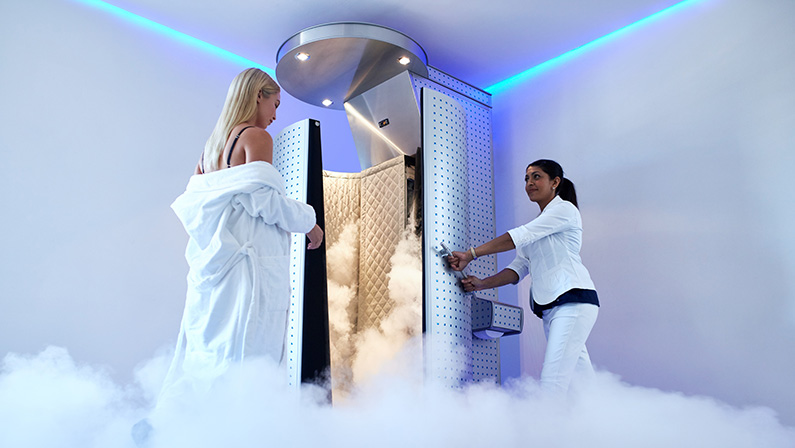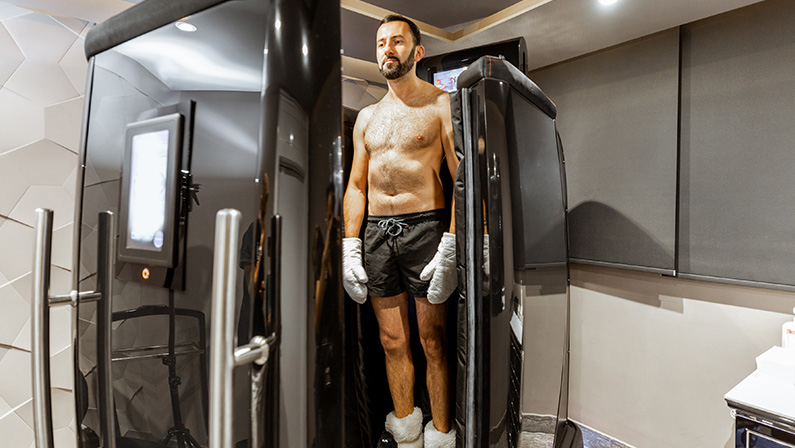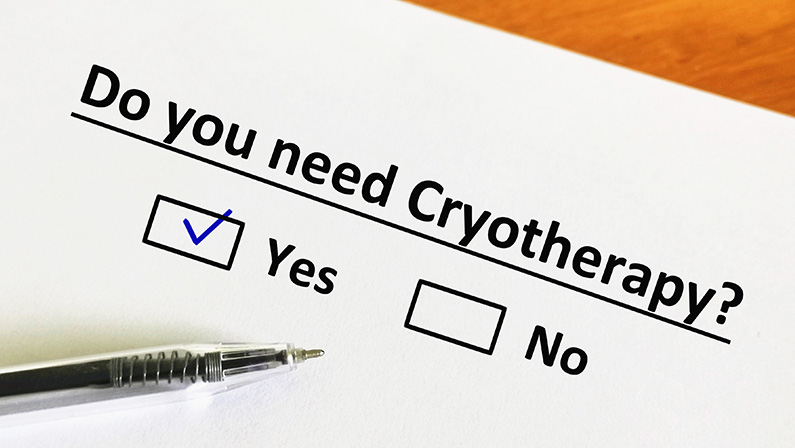If you’re a parent of a student-athlete, you probably know the routine—early practices, late games, and the constant challenge of balancing school with sports. So when your teen starts talking about recovery methods like cryotherapy, it’s normal to ask: is this really necessary? Or even safe?
Cryotherapy for high school athletes is gaining popularity as more young competitors seek faster recovery and better performance. But before jumping in, it helps to understand what cryotherapy is, how it works, and what role it might play in your teen’s sports recovery plan.
What Is Cryotherapy?
Cryotherapy is a recovery treatment that involves exposing the body to very cold temperatures for a short period—usually in a special chamber called a cryo chamber. The goal is to reduce inflammation, boost circulation, and speed up healing. It’s become a common part of recovery routines for professional athletes, and now it’s making its way into the routines of younger athletes too.
SolCore Wellness’s cryotherapy process is safe, quick, and administered by trained professionals who specialize in athletic recovery treatments for students, adults, and active individuals alike.
Potential Benefits for High School Athletes

While trendy, Cryotherapy also offers meaningful support for recovery and performance, especially for teens involved in high-intensity sports. Here’s how:
Faster Recovery
One of the most talked-about cryotherapy benefits for teens is how it may shorten recovery time. After a hard practice or a game, cold therapy helps reduce muscle soreness and inflammation, allowing your athlete to get back to training with less downtime.
Injury Prevention
Reducing inflammation and muscle tightness through consistent use of cryotherapy for high school athletes may lower the risk of overuse injuries. This is especially valuable during tournament seasons or when your teen is training intensively.
Improved Performance
When recovery improves, so does performance. Athletes who bounce back quicker are able to train more consistently and with better quality. Sports performance and cryotherapy often go hand in hand for this reason.
Mental Toughness
Beyond the physical benefits, cryotherapy can play a mental role too. The act of stepping into a cold chamber and enduring the chill may help build confidence and discipline—a small but meaningful boost for a young competitor’s mindset.
Is Cryotherapy Safe for Teenagers?
It’s a fair question: is cryotherapy safe for teenagers?
The short answer is yes. When done correctly and under professional supervision. At SolCore Wellness, treatments are administered with safety in mind. Sessions are brief, closely monitored, and customized for the individual.
While cryotherapy isn’t recommended for kids under 14, many teens aged 15 and up can safely use it as part of their sports recovery plan, especially when parents and providers stay involved in the decision-making process.
Factors to Consider Before Starting Cryotherapy

If you’re thinking about incorporating cryotherapy into your child’s routine, take a few moments to assess these key factors:
Age and Maturity of the Athlete
Some teens may be physically ready, but emotional maturity matters too. Can your child handle the intense cold and follow safety instructions?
The Intensity and Frequency of Their Sports Schedule
High-performing athletes training multiple times a week often benefit the most from sports recovery for young athletes, including cryotherapy.
Presence of Recurring Injuries or Soreness
If your child struggles with soreness or recurring soft-tissue injuries, athletic recovery treatments for students like cryotherapy may offer much-needed relief.
Access to Certified, Well-Regulated Cryotherapy Providers
Not all cryo chambers are created equal. Stick with trusted wellness centers like SolCore Wellness, where protocols are in place and staff are trained.
Cost and Alternative Recovery Options
Cryotherapy is one option among many. Alternatives like IV drip therapy and NAD+ treatments (learn more here) can complement or substitute depending on your child’s needs and your family’s budget. SolCore’s packages make it easier to find a cost-effective solution.
Parental Guidance and Questions to Ask

As a parent, you play a big role in your child’s health decisions, especially when it comes to something as new and specialized as cryotherapy. Before scheduling a session, consider asking:
Is your teen overtraining or under-recovering?
If they’re constantly sore or seem exhausted, cryotherapy might support their recovery process.
What are their coaches or trainers recommending?
Input from trusted coaches can help you determine if cryotherapy makes sense for your teen’s training cycle.
Has your child expressed interest, and do they understand the process?
Informed, willing participation is key. Teens should know what to expect and why they’re doing it.
Where is the treatment being performed, and is it by certified staff?
Always opt for reputable providers like SolCore Wellness, where safety, hygiene, and guidance are a priority.
Supporting Your Teen’s Recovery Journey
When it comes to sports recovery for young athletes, there’s no one-size-fits-all answer. But cryotherapy for high school athletes (especially a cryo chamber for youth) can be a valuable tool, especially when it’s thoughtfully integrated into a broader wellness routine.
SolCore Wellness specializes in helping athletes of all ages bounce back stronger. From cryotherapy and IV therapy to mobile wellness options, our services are tailored for real results.You can find us at 11403 Barker Cypress Rd, Suite 800, Cypress, TX 77433—or book your teen’s first session online and see how cryotherapy could be a game-changer for your student-athlete.
